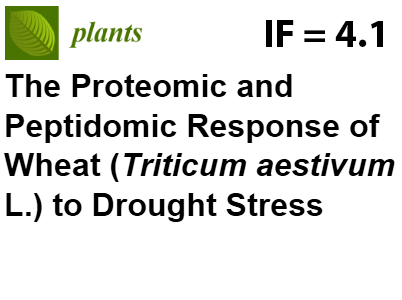
The Proteomic and Peptidomic Response of Wheat (Triticum aestivum L.) to Drought Stress
Researchers from the Laboratory of Systemic Protein and Peptide Analysis at the IBCh RAS, together with colleagues from the All-Russian Research Institute of Agricultural Microbiology, investigated how soft wheat adapts to drought at the proteome and peptidome levels. In leaves under water deficit, dehydrins, RRM-domain proteins, dirigent proteins, and nonspecific lipid transfer proteins—multifunctional proteins involved in lipid transport, membrane remodeling, and pathogen defense—were activated. In roots, enzymes related to sulfur metabolism, LEA proteins, and malic enzyme were upregulated, enhancing antioxidant protection. For the first time, an extracellular peptidome was described that includes phytocystatins, plantacyanins, and CAPE peptides—molecules capable of regulating intercellular signaling and increasing drought tolerance. This study provides the first comprehensive evidence of complex, organ-specific changes in the proteome and extracellular peptidome of soft wheat under prolonged drought, revealing new molecular components of intercellular communication that may serve as targets for improving crop stress resilience. The results are published in Plants.
august 20, 2025

